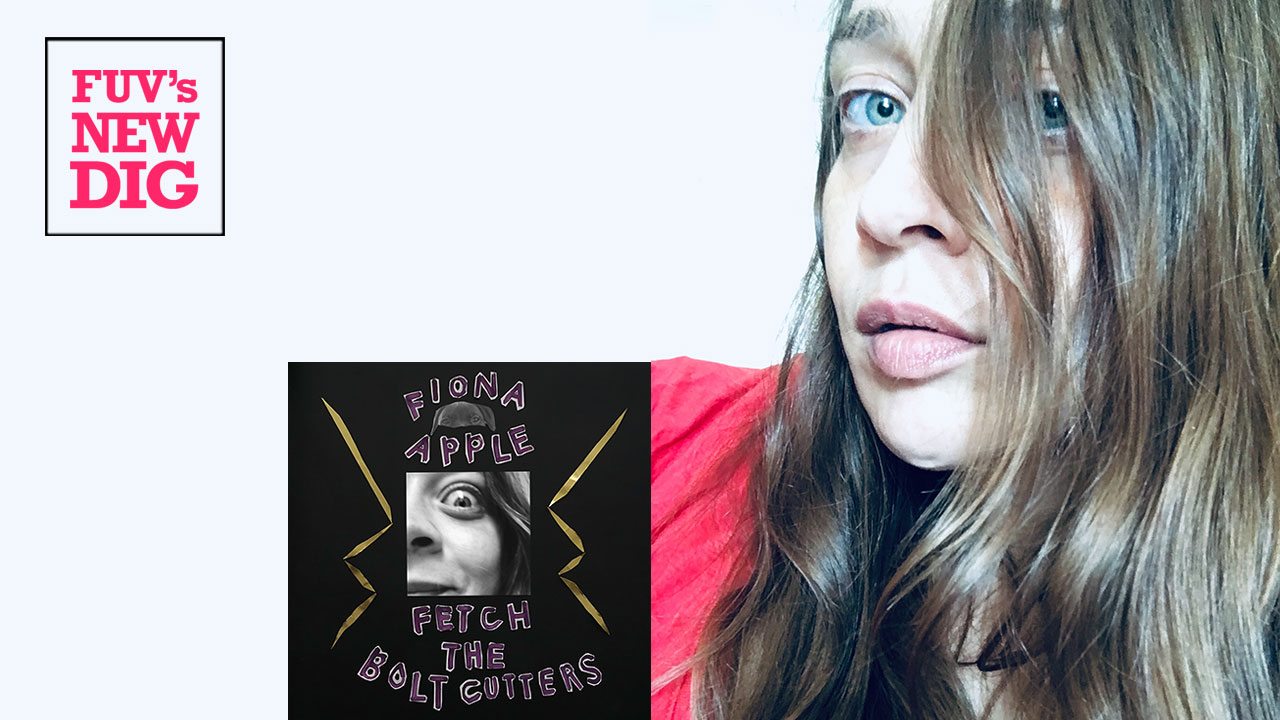Fiona Apple

Fiona Apple (photo courtesy of Epic Records)
Fiona Apple
Fetch the Bolt Cutters
Epic
Fiona Apple, a singular artist who does not invite comparisons, has created a singular new work, Fetch The Bolt Cutters, that is best explained in, well, comparisons. Imagine Alanis Morissette dialing up Rickie Lee Jones and Tom Waits and saying, "Hey! Let's make a hip hop album."
It would come out like much of Fetch the Bolt Cutters, with its found-art sonic ethic of pots-and-pans percussion and random ambient noise (expect computer speaker sampled instrumentation and dogs barking with abandon). It would drip attitude, but with that Apple panache that seduces you into thinking that with polish, these could be show tunes.
Apple turns many a clever phrase with probing and revealing lyrics, a specimen of which goes: "I spread like strawberries, I climb like peas and beans, I've been sucking it in so long that I'm bursting at the seams." That's the chorus of "Heavy Balloon," a song of pent-up feelings that comes to a head for all of us as our present stopped-world crisis mounts. In fact, Fetch The Bolt Cutters couldn't have been more exquisitely timed for the pandemic. The title cut bemoans "I've been in here too long." (Too long won't be long for all of us.) It's the unpolished quality that is most initially disarming about Apple's first album since 2012's The Idler Wheel....
Holed up in her Venice Beach digs, she chipped away at this new album over a period of five years, using GarageBand to capture the takes as they found their way. Collaborating with her are Soul Coughing alum Sebastian Steinberg, songwriter David Garza, and especially, percussionist Amy Aileen Wood. Apple's sister, cabaret star Maude Maggart, guests on a tune and you could imagine an intimate evening of these songs in a New York café society joint, where unwitting patrons would be scandalized by the lo-fi hi-fi that Apple has created. In a recent interview with The New Yorker, she summed up the album as "about not being afraid to speak."
Track by track, she holds little back. Apple's prison is not one of her own device, and each song calls out the oppressor in no uncertain terms. In "Drumset" it's the empty carpet where an ex-beau's instrument sat. She relishes unleashing spite on captive dinner companions in "Under the Table," despite her companion's shushes, with pearls like: "I would beg to disagree, but begging disagrees with me."
She delights in turning familiar tropes upside down in "Rack Of His." Pining for an indifferent lover-musician, she whips up this lascivious verse: "Check out that rack of his, look at that row of guitar necks, lined up like eager fillies, outstretched like legs of Rockettes." That reference alone winks with a drop of supper club sophistication that sets Fiona apart from the ax-grinding songwriter pack, and with no apology for abject lust ("I thought you would wail on me like you wail on them").
With conventional instrumentation and production, this album would not have worked. Fetch the Bolt Cutters' strength is Apple's flaunting of her own weaknesses and foibles. The homemade immediacy of the sound and arrangements frames her convincingly. You will be more deeply drawn in listening via earbuds or headphones, as the seemingly improvised audio verité conveys the candor of each song. But there is nothing slapdash about Apple's opus; every song is a fine-tooled artisanal work.
Fetch the Bolt Cutters will stand as a benchmark in career that has always played out on Apple's time and terms. It may not be an album that you'll come back to time and again for creature comfort familiarity, but for the right times and moods, it hits the spot like no other "up yours" song cycle ever has.

